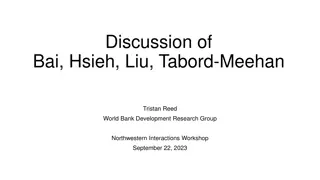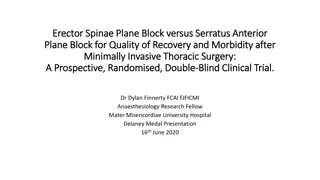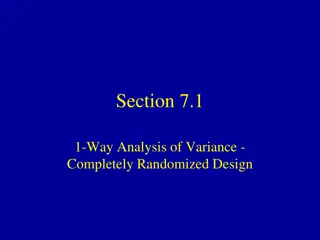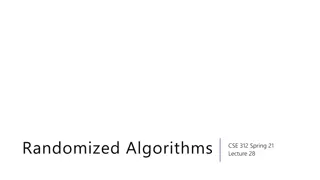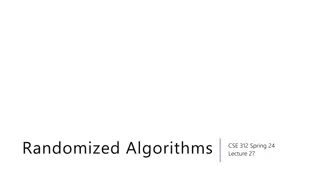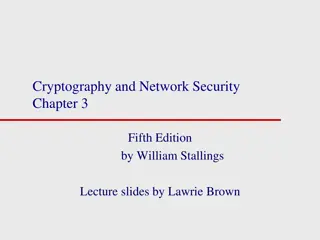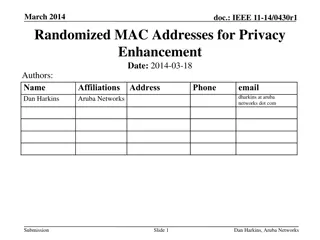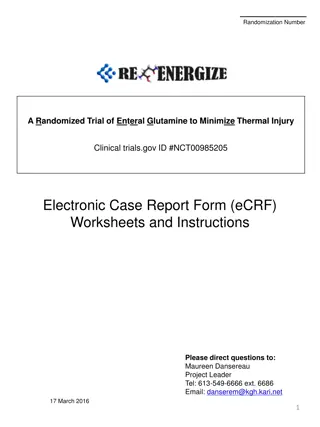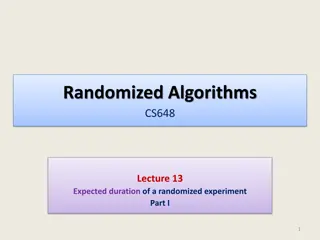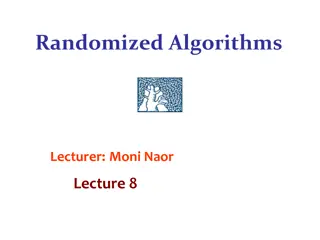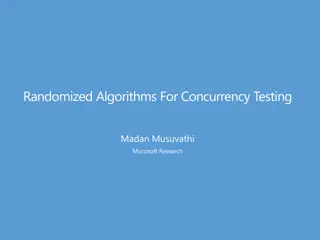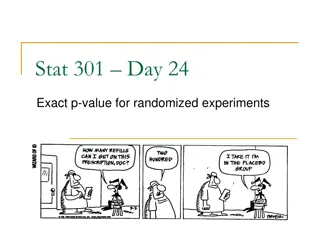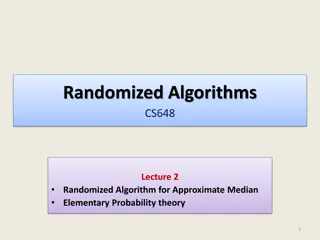OCTIVUS Randomized Clinical Trial: OCT-Guided vs IVUS-Guided PCI
The OCTIVUS Randomized Clinical Trial compared the clinical efficacy and safety of Optical Coherence Tomography (OCT)-guided and Intravascular Ultrasound (IVUS)-guided strategies in patients undergoing PCI for significant CAD. The study aimed to determine if OCT-guided PCI is noninferior to IVUS-gui
11 views • 27 slides
Buy Block Heels for Women Online in India 9threadz
\nLooking to elevate your style with the perfect pair of block heels? Look no further than 9threadz, your go-to destination for fashionable footwear online in India. Whether you're dressing up for a special occasion or simply want to add a touch of sophistication to your everyday look, our collectio
2 views • 4 slides
Critical Design Review for Proton Beam Window Port Block and Vessel
The Critical Design Review evaluates the readiness of the Proton Beam Window Port Block and Vessel project at ESS-Bilbao. It involves assessing design completeness, safety considerations, procurement readiness, and project plan alignment with specifications. A committee of experts examines system re
0 views • 8 slides
Discussion of Randomized Experiments and Experimental Design Challenges
Randomized experiments face statistical power challenges due to rare outcomes and high variance. Stratifying randomization can help control for correlated residual variance based on baseline values of outcomes. Implications for applied economists include addressing attrition and treatment effect het
0 views • 6 slides
Block Graphs: Examples and Explanations
A block graph visually represents discrete data in a collection of blocks with no gaps between them. Each block must be carefully drawn with a title and axes labeled to explain the data shown. Examples include surveys on favorite activities, zoo animal sightings, and chocolate wrapper colors. Learn
0 views • 8 slides
Biometrical Techniques in Animal Breeding: Analysis of Variance in Completely Randomized Design
Biometrical techniques in animal breeding involve the use of analysis of variance (ANOVA) to partition total variance into different components attributable to various factors. In completely randomized designs, experimental units are randomly assigned to treatments, ensuring homogeneity. The total n
1 views • 34 slides
Comparison of Erector Spinae Plane Block vs Serratus Anterior Plane Block in Thoracic Surgery Recovery
Minimally Invasive Thoracic Surgery often results in severe post-operative pain, typically managed with the Serratus Anterior Plane (SAP) block. This study compared the quality of recovery and morbidity between SAP and the relatively new Erector Spinae Plane (ESP) block. Results showed that ESP prov
2 views • 10 slides
IEEE 802.11-20/0055r0 Multi-link Block Ack Architecture Overview
This document from January 2020 presents an overview of the IEEE 802.11-20/0055r0 Multi-link Block Ack architecture proposed by Rojan Chitrakar from Panasonic. It discusses the negotiation of block ack agreements between multiple MLDs, common sequence number assignment, transmit and receive buffers,
1 views • 11 slides
Classification of Elements and Periodicity in Properties: Overview and Evolution
The journey of understanding the classification of elements and periodicity in properties begins with early laws like the Law of Triads and Newland's Law of Octaves. Mendeleev's Periodic Law revolutionized the organization of elements, leading to the modern periodic table. Discoveries of eka-alumini
3 views • 32 slides
Analysis of Variance in Completely Randomized Design
This content covers the analysis of variance in a completely randomized design, focusing on comparing more than two groups with numeric responses. It explains the statistical methods used to compare groups in controlled experiments and observational studies. The content includes information on 1-way
0 views • 48 slides
ANOVA in Experimental Design
In this educational content, we delve into the key concepts of ANOVA (Analysis of Variance) in experimental design. Topics covered include the necessary assumptions for conducting one-way ANOVA, the importance of testing factors in two-way ANOVA, various types of sum of squares, comparisons between
2 views • 15 slides
Software Engineering Design Principles and Concepts
The chapter discusses the essential principles and concepts in software design, highlighting the four key design models - data design, architectural design, interface design, and component-level design. It emphasizes the importance of traceability to the analysis model, minimizing the gap between so
2 views • 36 slides
ACST-2 Trial: Stenting vs. Surgery for Carotid Artery Stenosis
ACST-2 is a randomized trial comparing carotid artery stenting (CAS) versus carotid artery surgery (CEA) in asymptomatic patients with severe carotid stenosis. The trial, published in The Lancet in August 2021, involved 3625 patients. While surgery has been shown to reduce stroke rates, modern medic
0 views • 19 slides
Low-Dose Tricyclic Antidepressants (TCA) for IBS: ATLANTIS Study Overview
The ATLANTIS study evaluated the efficacy of low-dose amitriptyline (10-30 mg) in improving Irritable Bowel Syndrome (IBS) symptoms compared to placebo in a 6-month randomized controlled trial in a primary care setting. This important research aims to address the lack of definitive treatment guideli
0 views • 12 slides
Randomized Algorithms: Types and Examples
Explore the world of randomized algorithms through types like Las Vegas and Monte Carlo, with a focus on classic examples such as Quick Sort. Learn how randomness plays a crucial role in computation and discover the principles behind these algorithms. Dive into the applications of randomized algorit
0 views • 22 slides
Randomized Algorithms: A Deep Dive into Las Vegas and Monte Carlo Algorithms
Randomized algorithms incorporate randomness into computations, with Las Vegas algorithms always providing the correct answer but varying in time, while Monte Carlo algorithms occasionally give wrong answers. Quick Sort is a classic Las Vegas algorithm that involves pivoting elements for sorting. Ch
4 views • 21 slides
Overview of Mutual Exclusion and Memory Models in Distributed Systems
Discussion on fast, randomized mutual exclusion techniques by George Giakkoupis and Philipp Woelfel. Exploring asynchronous shared memory systems with atomic operations. Understanding mutual exclusion principles as outlined by Dijkstra in 1965 and measuring time efficiency in critical sections. Delv
2 views • 23 slides
D-Block Elements: Properties and Classification in Chemistry
Welcome to the Department of Chemistry at Kisan Veer Mahavidyalaya, Wai. Explore the Chemistry of Elements of the 3d series, focusing on d-Block Elements and Transition Elements. Learn about their electronic structure, colored ions, magnetic properties, oxidation states, and complex formation. Under
0 views • 34 slides
Block Ciphers in Cryptography
Explore the principles of block ciphers in modern cryptography, focusing on the Data Encryption Standard (DES) and its design principles. Learn about block cipher encryption, Feistel block cipher structure, n-bit block ciphers, ideal block ciphers, key length considerations, and challenges with idea
0 views • 44 slides
Taekwondo Techniques and Blocks: Defensive Moves in Action
Explore Taekwondo techniques such as the Down Block, X-Block, Knife-Hand Block, and Double Knife-Hand Block, used for defense against different types of attacks in martial arts. Detailed descriptions and illustrations demonstrate how to execute these blocks effectively to protect various parts of th
2 views • 25 slides
Taekwondo Techniques - Basics and Blocks for Self-Defense
Explore the fundamental Taekwondo techniques focusing on blocking movements for self-defense. Learn about Down Block, X-Block, Knife-Hand Block, and Double Knife-Hand Block with detailed descriptions and images illustrating each move. Enhance your understanding of these essential blocks in Taekwondo
4 views • 11 slides
Enhancing Privacy with Randomized MAC Addresses in 802.11 Networks
This presentation discusses the use of randomized MAC addresses as a privacy-enhancing measure in 802.11 networks. Passive observation of MAC addresses poses privacy risks, and the proposal suggests assigning random MAC addresses to portable devices to mitigate tracking risks. By periodically changi
0 views • 10 slides
Electronic Case Report Form (eCRF) for Randomized Trial of Enteral Glutamine to Minimize Thermal Injury
Development of case report form worksheets for data collection in a randomized trial focusing on enteral glutamine use to minimize thermal injury. The document provides detailed instructions for research coordinators on data recording from medical charts to be entered into the electronic data captur
1 views • 61 slides
Expected Duration of a Randomized Experiment: Coupon Collector Problem Analysis
Explore the fascinating Coupon Collector Problem, where distinct coupons are randomly selected from a bag until each has appeared at least once. Dive into the analysis of the expected number of iterations required for all coupons to be collected, shedding light on the gradual transition through disc
0 views • 33 slides
Balanced Incomplete Block Design in Experimental Statistics
Balanced Incomplete Block Design (BIBD) is a crucial experimental design method where treatments exceed units per block. This approach helps efficiently analyze data by organizing treatments into blocks and replicates. In the provided example, Ford Falcon prices quoted by dealers to interviewers sho
0 views • 20 slides
MLA Style Guide for Block Quotations
Learn how to format block quotations according to MLA style guidelines. Use a block quote for material longer than four lines, indent one inch from the left margin, and type it double-spaced without quotation marks. Remember to introduce block quotations with a colon.
0 views • 4 slides
Advanced Encoding Techniques in Randomized Algorithms
Explore innovative approaches in randomized algorithms through techniques such as perfect memory, efficient card guessing strategies, and polynomial encoding methods over finite fields. Learn how to optimize memory usage and enhance predictive capabilities in algorithmic processes.
0 views • 41 slides
Taekwondo Training: Block Techniques Explained
Dive into the world of Taekwondo block techniques with detailed descriptions and images of essential blocks such as Down Block, X Block, Knife-Hand Block, and Double Knife-Hand Block. Learn the proper execution and applications of each block to enhance your defensive skills in martial arts.
0 views • 25 slides
Challenges and Solutions in Concurrency Testing with Randomized Algorithms
Concurrency testing in complex cloud services presents challenges such as bugs, performance problems, and data loss. Randomized algorithms, like Probabilistic Concurrency Testing (PCT), offer effective bug-finding solutions. PCT provides probabilistic guarantees and scalable bug detection for distri
0 views • 37 slides
Taekwondo Techniques for Defense: Blocks and Movements
Explore the fundamental blocking techniques in Taekwondo, including the Down Block, X-Block, Knife-Hand Block, and Double Knife-Hand Block. Learn the proper execution and defense strategies against different types of attacks targeting various body sections. Enhance your skills and understanding of s
0 views • 11 slides
Statistical Issues in Clinical Trials: Insights from 13th Annual Conference
The 13th annual conference on Statistical Issues in Clinical Trials covered topics such as penalties for extra variation and limited degrees of freedom, the Diet-Heart Hypothesis, controlled trials, unit of randomization, and causal inference. Speakers highlighted the importance of addressing cluste
0 views • 10 slides
Exact P-Value for Randomized Experiments and Quiz/HW Feedback
In this Day 24 session of Stat 301, exact p-values for randomized experiments were calculated in Investigation 3.6 Questions (a) - (f). The completion of both Section 1 and Section 2 of this investigation is noted. Additionally, comments on a quiz or homework assignment were provided.
0 views • 16 slides
S-Block Elements in the Periodic Table
The s-block elements in the Periodic Table consist of 14 elements with unique properties and characteristics. Lithium, sodium, and potassium are notable members of Group 1, characterized by their reactivity and ability to form alkaline solutions when in contact with water. These soft metals exhibit
0 views • 23 slides
Guide for File Download Block Creation
In this guide, you will learn how to create a file download block on your webpage step by step. First, you need to click the small plus symbol, then initiate the file download process. You can customize the title, format, text color, and background theme accordingly. Finally, you can choose when and
0 views • 34 slides
A Journey to Reduce Missed Abusive Head Trauma: From Index Case to Cluster Randomized Trial
Abusive head trauma (AHT) is a significant cause of trauma-related death and disability in young children. The journey to address missed cases of AHT began with the index case in 1995, leading to a cluster randomized trial aiming to improve recognition and prevention. The consequences of missed AHT
0 views • 74 slides
Randomized Algorithms for Approximate Median with Elementary Probability
This content covers a lecture on a randomized algorithm for finding an approximate median element using elementary probability theory. It discusses the importance of insight and basic probability in designing and analyzing such algorithms. The lecture presents a simple probability exercise involving
1 views • 25 slides
Forty-eight-Week Outcomes of a Site-Randomized Trial for Depression Among Youth with HIV
This study explores the outcomes of a site-randomized trial utilizing a combined cognitive behavioral therapy and medication management algorithm for treating depression among youth with HIV in the U.S. The team involved includes medical officers, data managers, statisticians, clinical trial special
0 views • 22 slides
Methods for Quantifying Efficacy-Effectiveness Gap in Randomized Controlled Trials
This research discusses the quantification of the efficacy-effectiveness gap in randomized controlled trials (RCTs), particularly focusing on examples in Acute Respiratory Distress Syndrome (ARDS). It explores the challenges of RCTs, ethical considerations, and the use of observational data for caus
0 views • 8 slides
Efficient Implementation of Atomic Snapshots with Randomized Assistance
Explore the innovative approach of implementing atomic snapshots in O(log n) steps using randomized assistance, as discussed by James Aspnes, Yale Keren Censor-Hillel, and Technion researchers. The method involves snapshot objects, multi-writer registers, and tree structures to achieve efficient ope
0 views • 18 slides
Block Registration Process Overview
This content provides an overview of the block registration process at Cal Poly, detailing the goals, assumptions, issues, tools, tracks, timeline, and benefits associated with block scheduling. It explains how the process works, including building tracks, creating schedules, loading student and cla
0 views • 30 slides



